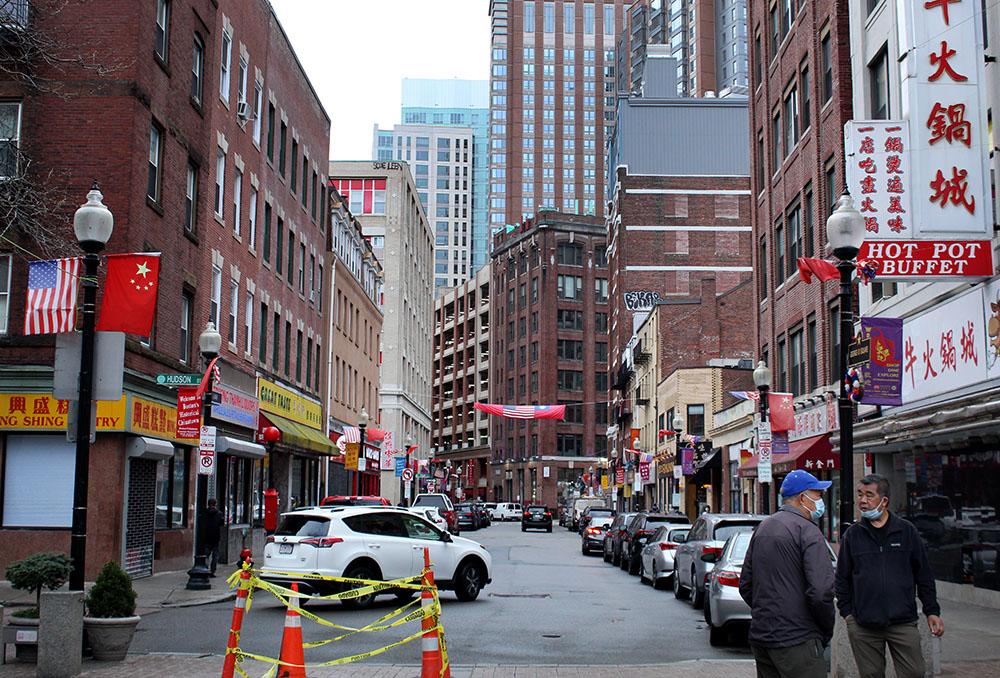
Mayor Michelle Wu announced the Heat Resilience Solutions plan for Boston on Earth Day to tackle rising summer temperature.
“In the last decade alone, Boston suffered more hot days and nights than any decade in the last 50 years,” Wu said in an April 22 press conference. “In fact, Suffolk County and the Boston area have experienced some of the greatest temperature increases on average compared to places around the world.”
This summer, the city will launch a pop-up cooling support for 30 community organizations, a “cool bus stop” community design competition and a Cool Roof Grant Program — which will install cool roofs and educate Bostonians on the benefits of the roofs.
The city will also invest $2.5 million in a new Climate Ready Streets program to deliver on heat resilience, stormwater management and air quality.
The heat resilience plan outlines 26 strategies that will prioritize five neighborhoods that face extreme heat island effects — a phenomena that urbanized areas experience higher temperatures because pavement and buildings absorb heat more than greenspaces — including Chinatown, Dorchester, East Boston, Mattapan and Roxbury.
“It’s not only uncomfortable, but dangerous for residents who especially don’t have air condition or live in neighborhoods experiencing heat island effects, such as Chinatown or Roxbury,” City Council President Ed Flynn said in an interview.
The city will also allocate $137 million in capital funding toward constructing and preserving parks, tree canopy and open spaces. Flynn cited green spaces specifically as a remedy for raising temperatures in places with minimal treetops.
“We have very few parks,” Flynn said in the April 22 press conference, “but we want to make sure that these young kids have the same access to open space, to parks, to playgrounds, to athletics programs, as any other kid across the city.”
Adam Schlosser — deputy director of the Joint Program on the Science and Policy of Global Change at the Massachusetts Institute of Technology — said governments need to make “bold, daring investment choices” with nature and the community in mind.
“Any kind of nature-based solution, I think, also might even galvanize people to do something together,” Schosser said. “In a very real sense, asking people to go out and plant trees could actually be a very community galvanizing event.”
Boston Climate Action Network Advocacy Director Sophie Cash said climate issues and social justice are interrelated.
“[Extreme Heat] is going to impact Boston’s most marginalized communities first,” Cash said. “With a historic and current lack of tree canopy in redlined neighborhoods, leading to immigrant communities and Black and brown communities having elevated urban heat island effect in the summer.”
Mattapan resident Maria Isabel Morel said she would encourage the city to build free, public cool spaces for people who are more vulnerable, such as senior citizens and homeless people.
“If the temperatures are too high, it could be dangerous to their health,” Morel said.
Cash added low-income communities face higher “energy burdens” because their houses are often older.
“Somebody might have to decide between life savings, air conditioning and paying for food,” Cash said. “That’s crazy.”
City of Boston Climate Resilience Project Manager Zoe Davis said the heat resilience report aims to focus on both solutions and equity.
“It’s not just about cooling the city, but it’s ensuring that the folks who are experiencing the greatest impacts have access to the resilience investments that we’re making as a city,” Davis said.
Flynn added the City Council is also working closely with residents and community leaders.
“It’s about working together and listening to each other, respecting each other and coming up with solutions that benefit the residents of the city,” Flynn said.
Wu said that the City will take “immediate action” but still look to the future with its Green New Deal.
“Today’s plan and this task force are our latest steps forward, but they’re certainly not the last,” Wu said. “We will … continue collaborating towards a citywide Green New Deal and thriving green economy.”


















































































































